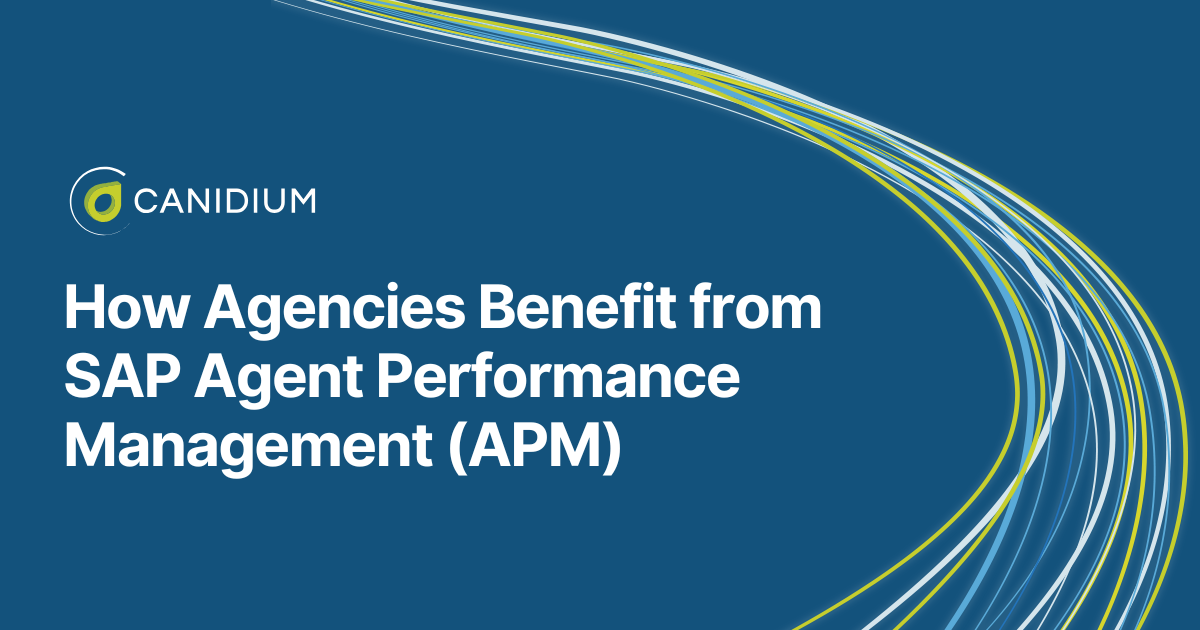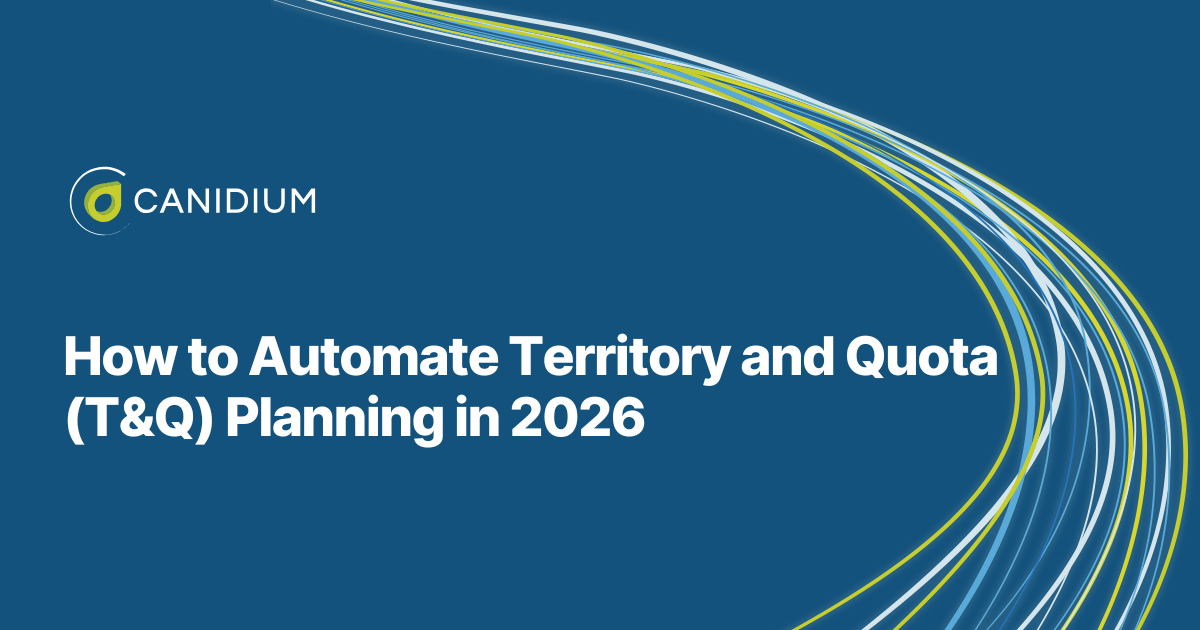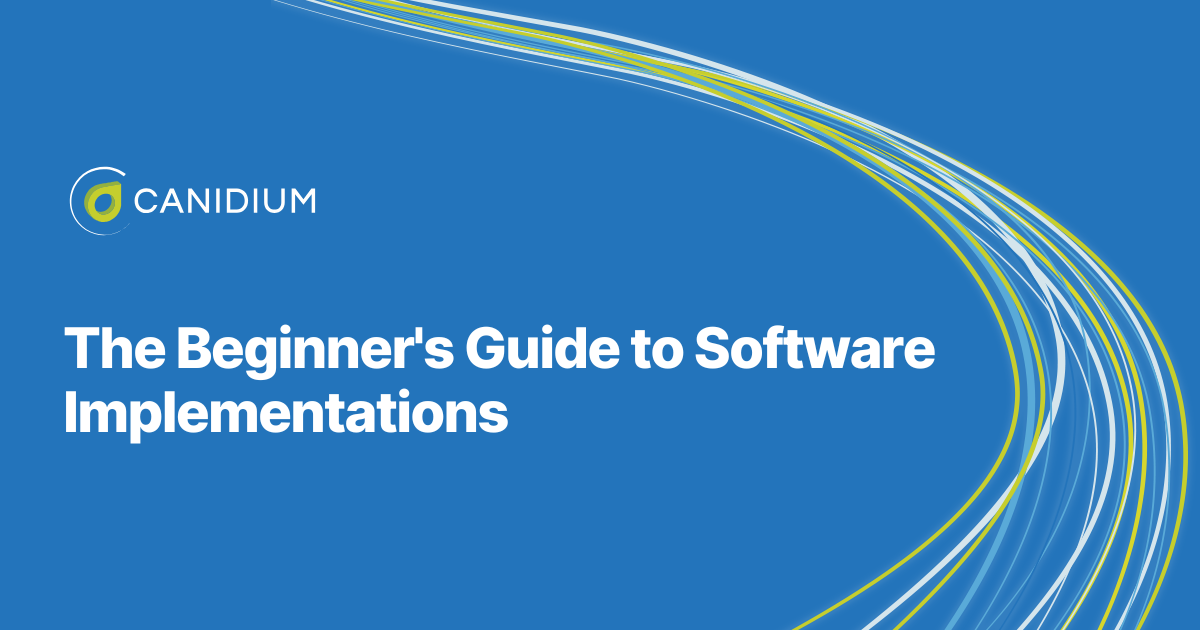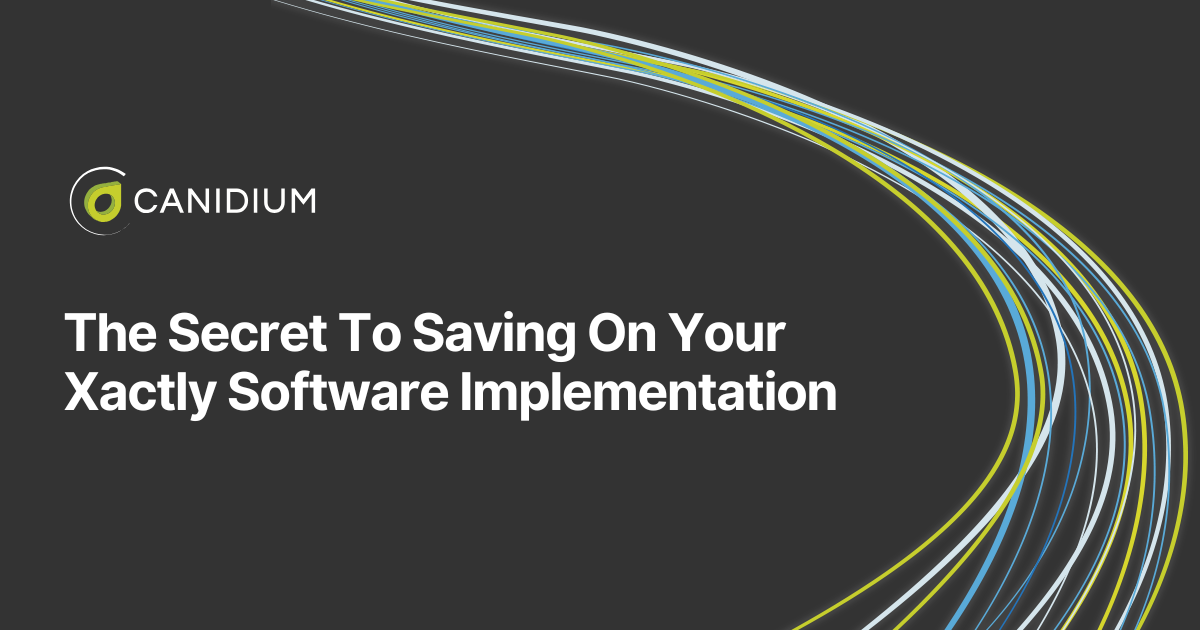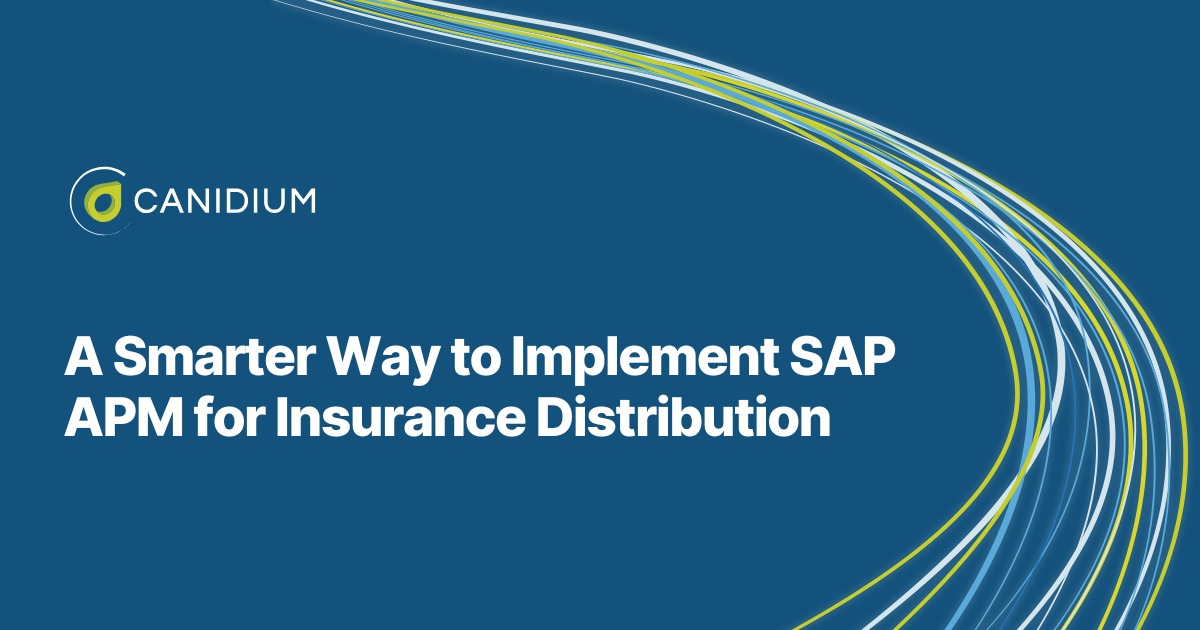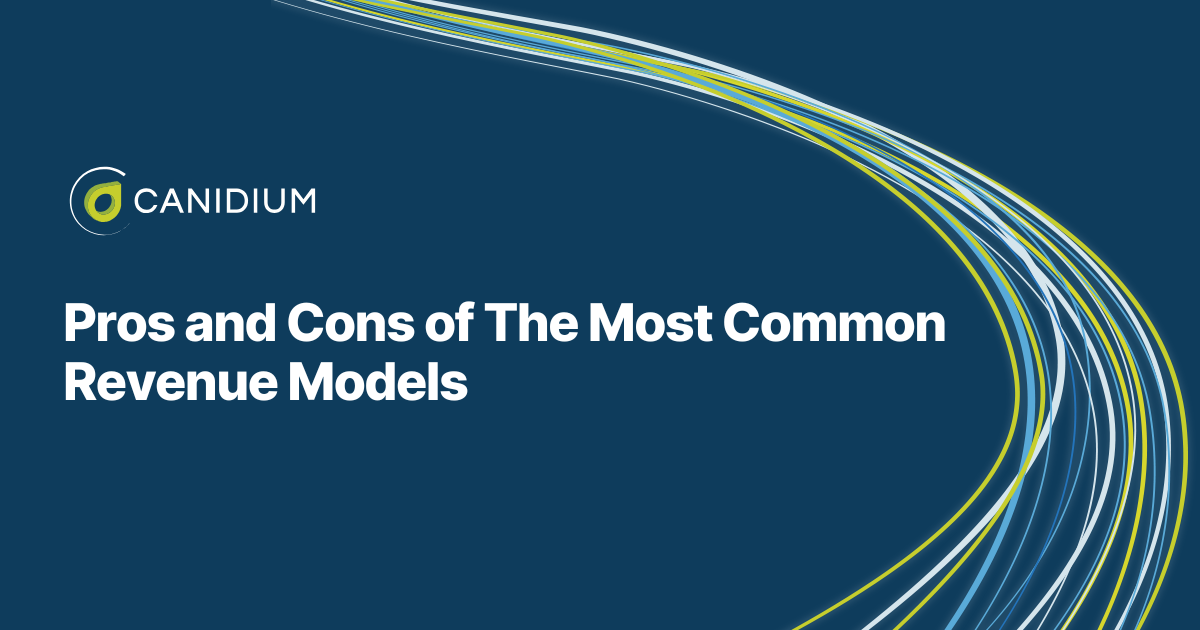With recent advances in AI and automation, many insurance agencies are looking to upgrade their technology. As a result, the market as a whole is becoming faster and more efficient. The performance improvements brought about by solutions like SAP's Agent Performance Management (APM) make agencies more competitive, leaving those without novel technology behind.
At Canidium, we partner with best-in-class business technology applications to drive greater revenue and reduce inefficiencies with digital solutions. We help agencies determine which software solutions best suit their unique priorities and workflows.
This article covers the following benefits of APM to help you determine if it is the right solution for you.
What is SAP Agent Performance Management (APM)
SAP Agent Performance Management (APM) equips insurance agencies with the tools to enhance agent performance. The system enables better agency communication through clear hierarchy mapping, improved data value with seamless centralization, increased payment accuracy, a wide array of application integrations, and more efficient comp plan management with automation.
Imagine a large insurance agency using APM. The agency has a complex organizational hierarchy with hundreds of agents reporting to team leads, who in turn report to regional managers, and so on up to senior leadership. Using APM, the agency maps out this hierarchy within the system, ensuring seamless data flow and visibility at every level. Regional managers can quickly pull performance reports for their entire area, while team leads can drill down to see metrics for individual agents.
At the same time, APM automates compensation for agents working under different payment plans, ensuring they receive accurate, timely payments based on their contracts and performance. Agents no longer need to waste hours checking for errors or filing disputes because the system seamlessly integrates with an efficient dispute-resolution workflow application. APM also integrates with the agency’s CRM and licensing systems, allowing agents to easily update banking information, download contracts, or receive alerts for license renewals.
As a result of using APM, the agency benefits from centralized data and automated routine processes, reducing administrative burdens while also fostering trust and loyalty among agents, ultimately driving higher retention and profitability.
Hierarchy Mapping
One of the standout features of APM is its ability to handle complex organizational hierarchies. Other agent performance management systems often lack the capability to map and visualize the layered structures typical in larger agencies, where data needs to flow seamlessly from street-level agents up to senior management.
APM addresses this gap by enabling the creation and maintenance of a clear hierarchical structure within the system. This not only facilitates better communication and data flow but also allows management to access and review detailed performance data from any level of the organization, fostering a deeper understanding of each unit's contribution to the agency's overall goals. Consequently, leadership has greater insight into granular aspects of daily operations.
Increased Payment Accuracy
APM significantly enhances the accuracy and flexibility of payment processes within agencies. Traditional methods, which often rely on manual tracking and spreadsheets, are prone to errors that can delay payments and frustrate agents. These highly manual processes are not only inefficient, but they also degrade agents' trust in the accuracy of payroll.
APM's robust system automates and centralizes payment calculations, ensuring that agents receive accurate, timely payments according to their specific contract terms. This serves the dual purpose of eliminating administrative overhead caused by time-consuming payment disputes, while also fostering trust in the agency’s administrative processes among agents.
Additionally, the system supports various payment schedules, accommodating different financial and operational needs, varying from weekly to monthly payouts, thus improving cash flow management for agents and the agency alike. APM also handles the inherent complexity of compensation plans that vary by client, policy, hierarchy, and more. It resolves the difficult, error prone, and time-consuming process of manually calculating diverse payment structures. All the rules needed to automatically calculate and generate payments are stored by the system, no matter how complicated they are. This means agencies don’t have to worry about manually managing those details—it takes care of the heavy lifting.
A recent survey found that 90% of workers believe automation increases productivity, and 85% report that these tools boost team collaboration. Nearly 90% also said they trusted automation solutions to get more done without errors and help them make decisions faster. APM helps agencies effectively leverage automation.
Seamless Integrations
APM's flexibility extends to its integration capabilities. It can be seamlessly paired with other software tools used within the agency, such as AgentSync for workflow management or CRM systems for customer relationship management. Other integrated applications such as SAP’s Agent Connection facilitate access to producer lifecycle management, sales tools, and the platform’s Reporting Portal. Alternatively, SAP’s Advanced Workflow provides automation tools that improve the efficiency of business processes.
Advanced Workflow allows users to update their information directly through APM's portal. This integration simplifies address changes, licensing updates, and compliance management. It makes them more efficient by automating updates and approvals as needed. For instance, producers can independently update their banking information for commission payments or download necessary marketing materials and contract templates directly from the portal. This capability not only speeds up their workflow but also reduces administrative overhead.
One of the most important benefits of APM's workflow tools is their dispute-resolution capabilities. Agencies can set up dispute resolution workflows directly within agents' portals, making the process of submitting disputes much simpler and more efficient for agents. For example, APM users have noted that the platform's accuracy, coupled with the ease of dispute resolution, saves them up to ten hours a month checking their paystubs for errors.
APM also resolves regulatory concerns for agencies by integrating with the National Insurance Producer Registry (NIPR). The system provides real-time alerts on licensing changes and renewals, ensuring all agents comply with federal and state regulations. This proactive approach not only helps agencies avoid legal penalties but also maintains the integrity and credibility of operations. At the same time, Salesforce integrations further enhance the potential functionality of an agency’s APM infrastructure, making the platform highly customizable.
Streamlined Comp Plans for Carriers With Centralized Data
APM simplifies comp plan administration by automating plan management and centralizing data. Agencies receive data in a wide variety of formats from different sources and carriers. Managing these diverse data sets manually is exceedingly difficult, often resulting in silos. As a result, the value of analytics and reporting is limited by fragmented data. APM solves this issue by consolidating data from multiple sources and formats into a centralized location. This eliminates the reliance on disparate systems and manual spreadsheets, which are prone to errors and inconsistencies. During this process, the data is 'mastered'—meaning it is standardized, cleaned, and ready for use across various functions. Consequently, reporting and analysis is comprehensive and accurate.
Beyond eliminating potential data silos, which cause employees to lose an estimated 12 hours a week, APM's impact on overall process efficiency cannot be overstated. Automating routine tasks and centralizing data management frees agents to focus more on sales and customer engagement rather than administrative details. This shift not only improves individual performance but also drives higher overall agency productivity and profitability.
Improved Retention
High employee retention rates can foster greater organizational efficiency, increase agent dedication, and reduce hiring and onboarding costs. Agencies undertake various initiatives to keep high performers, but unless core operations are stable and reliable, added perks will not benefit agents. For example, 42% of employee turnover is preventable.
Late or inaccurate payments directly degrade agents' trust in their agency. APM prevents this issue by ensuring that agents are compensated accurately and promptly. The system's reliability and efficiency in handling payments and disputes significantly increase agent satisfaction and loyalty. Furthermore, by reducing administrative burdens and providing clear metrics and goals, APM helps agents feel more valued and supported, which is crucial for long-term retention.
Leveraging the Benefits of APM
SAP APM is an indispensable tool for agencies aiming to streamline operations and enhance agent performance. By providing a robust framework for data management, compensation processing, and compliance tracking, APM simplifies daily operations and supports strategic business goals.
Updating manual spreadsheet-based administrative processes is a vital initiative for agencies undergoing digital transformation. The returns from such an upgrade span the tangible benefits of efficiency gains to the intangible impacts of improved employee retention. That said, all of the impacts of implementing APM have the capacity to drive up revenue. However, it helps to see a real-world example of what AMP can do. Check out this comprehensive case study on integrating APM with existing infrastructure.


